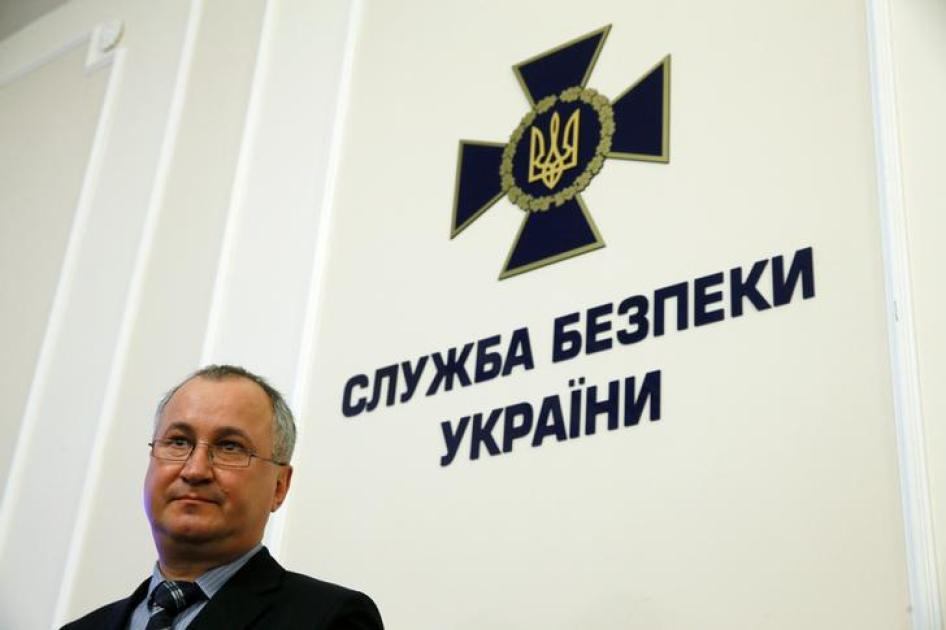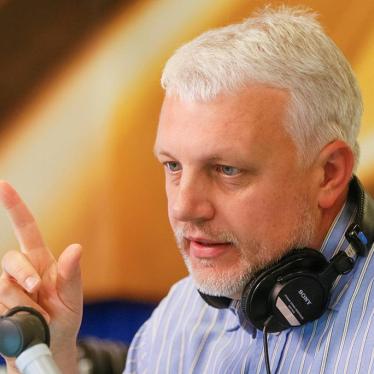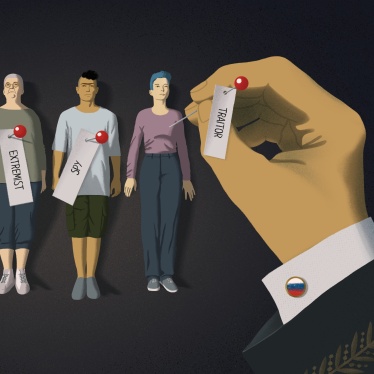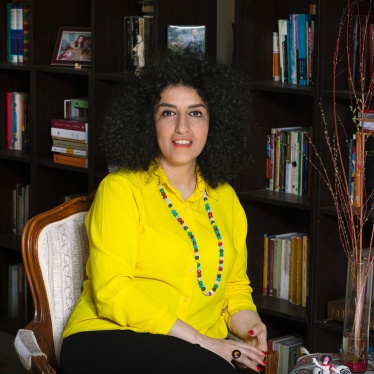(Kyiv) – Ukrainian authorities have detained and expelled several foreign journalists in recent weeks, most recently Russian reporter Anna Kurbatova, Human Rights Watch said today. In just over a month, the Security Services of Ukraine (SBU) have expelled or denied entry to at least five foreign journalists – three from Russia and two from Spain – for allegedly engaging in anti-Ukrainian “propaganda.”
“The Ukrainian government’s practice of accusing journalists of anti-Ukraine bias, then expelling them or denying them entry, is a serious violation of its international human rights commitments,” said Tanya Cooper, Ukraine researcher at Human Rights Watch. “Barring journalists is short-sighted and vindictive, and undermines Ukraine’s pledges on democratic reforms and the rule of law.”
On August 30, 2017, the SBU in Kyiv detained Kurbatova, a journalist with Channel One, a major Russian television station. An SBU spokesperson announced via Facebook that Kurbatova had been expelled and banned from Ukraine for three years. The spokesperson also said that this would happen to “anyone who allows themselves to discredit Ukraine.”
In one of her latest reports from Kyiv, Kurbatova described Ukraine’s Independence Day anniversary as a “sad celebration” due to the armed conflict in eastern Ukraine and economic hardships in the country.
Kurbatova’s detention and removal from Ukraine is the latest example of mistreatment of foreign journalists.
On August 25, the SBU denied entry to two Spanish journalists, Antonio Pampliega and Manuel Ángel Sastre, and barred them for three years. Pampliega and Sastre work for several media outlets, and had covered the armed conflict in eastern Ukraine. The SBU accused the journalists of carrying out “activities countering national interests of Ukraine.”
On August 29, Ukraine’s Ministry of Information Policy released a statement expressing concern about the journalists’ situation and claiming that it had “filed requests to the relevant law enforcement agencies, including the SBU, asking for a detailed explanation.” The journalists wrote on Twitter that they had been detained in the Kyiv Boryspil airport for 20 hours, “treated like criminals,” and then sent back to Spain without explanation. The journalists covered a variety of issues related to the armed conflict in eastern Ukraine, including the plight of civilians in the conflict zone, and criticized the Ukrainian government for not doing enough to protect them.
On August 14, the SBU detained and expelled Tamara Nersesyan, a correspondent with the Russian state television and radio company VGTRK, accusing her of “actions damaging to Ukraine’s national interests.” Nersesyan was banned from entering the country for three years. Another VGTRK journalist, Dariya Grigorieva, was expelled from Ukraine in April and banned for five years.
On July 26, the SBU expelled Maria Knyazeva, a journalist with Russian television channels Rossiya 1 and Rossiya 24. The SBU also banned Knyazeva from entering Ukraine on the grounds of “biased coverage of the situation in Ukraine.”
The Representative on Freedom of the Media of the Organization for the Security and Cooperation in Europe (OSCE), Harlem Desir, expressed concern over the detentions and expulsions of journalists. Ukraine is a member of the OSCE and the Council of Europe, as well as a party to the European Convention on Human Rights and has taken on specific obligations to respect and protect freedom of expression and support media freedom.
Much of the mainstream media in Russia, including television, print, and online outlets, are either owned or indirectly controlled by the state and have become the voice of the government. Moreover, some use elaborate propaganda tools, including blatant misinformation, to mobilize patriotic support for the government and its agenda, including support of armed groups in eastern Ukraine and Russia’s occupation of Crimea.
“Ukraine has legitimate reasons to be concerned about biased or false media reports, particularly Russian propaganda, but barring journalists is not the answer,” Cooper said. “The authorities should make Ukraine a country where media can convey different views without fear of retaliation.”









